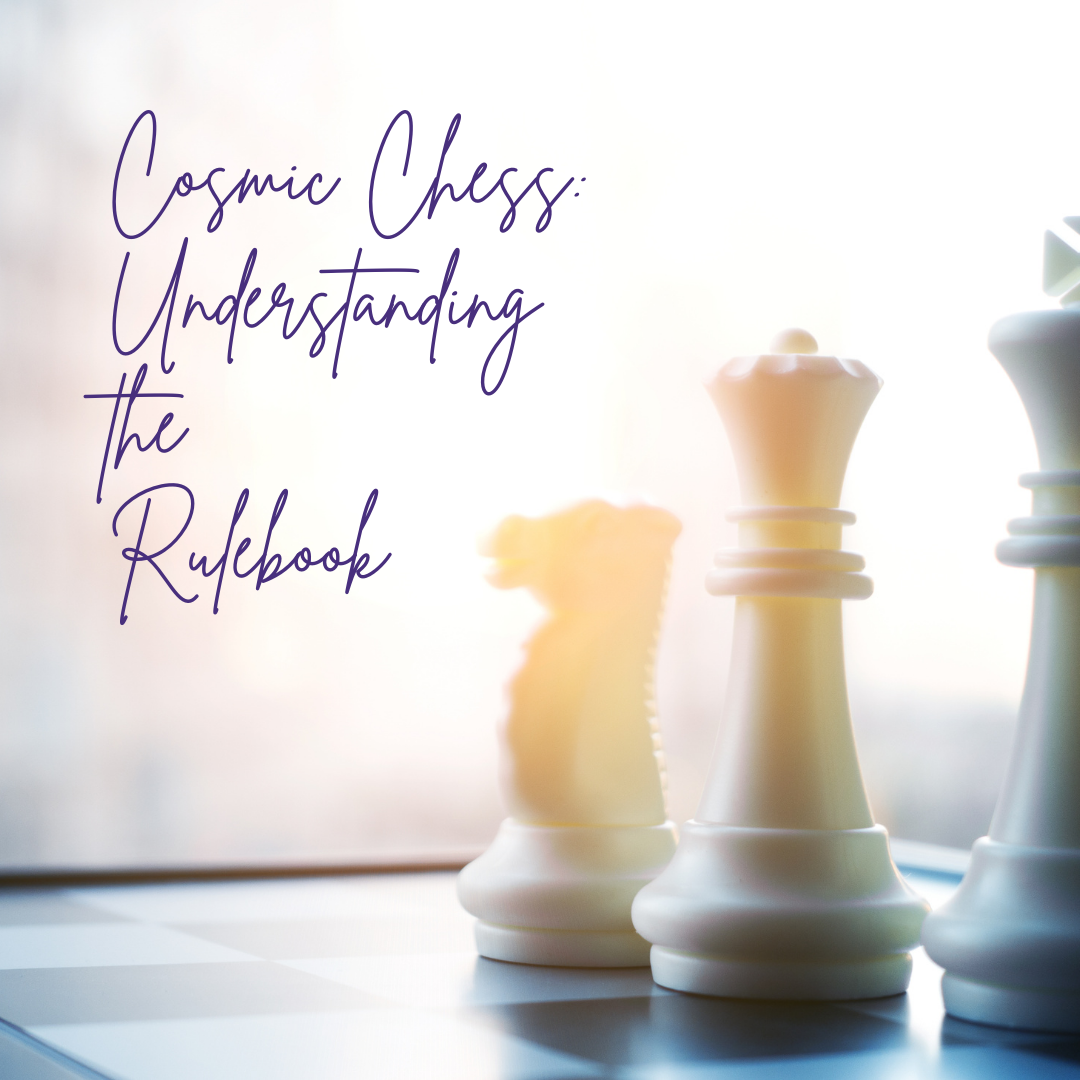If you missed the last blog post, you might be wondering why God doesn’t just eliminate all evil and create a perfect world. It’s a perplexing question, but it becomes clearer when we consider the concept of rules of engagement.
Again, in a nutshell, the enemy is making accusations against God’s character, and although God has the power to stop it instantly, it is suggested that if he did, human hearts would be more inclined to believe the accuser than God, because force does not bring about trust. So, to demonstrate God’s true character, there’s a theory that a trial-like situation is happening. In order for this to be a fair trial there have to be some rules God agrees to. If you have not heard of this concept before, join me as we explore it together.
Think of it this way: when you engage in a sport or artistic activity, there are specific rules or principles you follow to achieve the desired outcome. Similarly, it is suggested that the cosmic conflict between good and evil operates with certain rules, although they’re not explicitly mentioned in the Bible. However, we can observe peculiarities in biblical stories that suggest the presence of a guiding framework.
Let’s look into a few biblical stories that shed light on these rules of engagement:
The Parable of the Wheat and the Tares (Matthew 13:24-30): Jesus tells a story about a farmer who sows good seeds in his field, but an enemy sneaks in and sows weeds among the wheat. The presence of weeds raises the question of why evil exists in a world created by a good God. The farmer’s response implies that it wasn’t meant to be this way and reveals an understanding that uprooting evil prematurely could cause more harm than good.

It was jolting thought for me to think that even though the evil that has happened to me in my lifetime because God did not weed some things out, caused me less damage than would have been caused had he weeded them out. I can’t even fathom what kind of damage could happen if evil were uprooted right here and now. Can you? One of the rules I could imagine being behind this story could be to preserve as many as possible. Can you see any other possible rules at play here?
Daniel’s Delayed Answer (Daniel 10:12-14): Daniel’s fervent prayers for wisdom and revelation are met with a delayed response. The messenger angel explains that he was hindered by the prince of the kingdom of Persia. It is quite clear that there are opposing forces at work, and even though God sent the angel on day one, the opposition caused a delay. This is only possible if God was not exercising all his power, if there was some reason, some parameter that God is not changing or overruling. That is what the people who coined this term of rules of engagement think is evidence that there must be such rules. Because if there were not, why would God not just have eliminated the demonic power and got that answer to Daniel on day one?
Temptation in the Desert (Matthew 4:1-11): When Jesus is tempted by the devil, the devil claims to have authority over all the kingdoms of the earth. While Jesus doesn’t directly refute this claim, it doesn’t mean that the world actually belongs to the devil. This exchange implies a temporary state of affairs where Jesus permits certain things to occur within the existing framework.
Let’s talk about the temptation Jesus faced to turn stones into bread. It may seem like a simple desire for food, but there’s more to it. On the surface, there’s nothing morally wrong with turning stones into bread, especially considering that Jesus was fasting and probably needed some food at that point. But if Jesus resisted the temptation, there must have been a rule Satan was trying to make Him break.
So, what rule could Satan have been after? Maybe it wasn’t just about using His power for personal benefit. Perhaps there were other commitments or promises that God had made in the cosmic conflict, and turning stones into bread might have violated those commitments.
By choosing not to turn stones into bread, Jesus showed His complete trust in God’s timing and His unwavering commitment to fulfilling His purpose in the most righteous way possible. It wasn’t just about satisfying His own hunger; it was about honoring the larger plan and remaining faithful to God’s principles.
The story of Job further illuminates the cosmic conflict. Satan accuses Job of being righteous only because God has blessed and protected him. This accusation leads to a celestial trial where Satan challenges the rules of engagement. Despite the hardships Job endures, he remains steadfast in his faith.
It’s important to note that the concept of the cosmic conflict doesn’t absolve humans of personal responsibility and accountability for their choices. While evil forces may influence and tempt individuals, humans ultimately have the capacity to make their own decisions. The cosmic conflict can be seen as a backdrop that influences and shapes human choices, but it does not excuse or negate individual responsibility. It’s like every time we’re faced with a choice, the enemy is there, gathering evidence against God’s character. He’s trying to sway us into making choices that he can use as ammunition in the trial. It’s a constant battle for our hearts and minds. Personal choices, whether influenced by external forces or not, have real consequences.

As we try to wrap up this topic, let’s consider Isaiah 5. In this story, a landowner has a vineyard on a fertile hill and does everything possible to ensure a bountiful harvest. However, the vine yields worthless grapes. The landowner questions what more he could have done, demonstrating the extent to which God goes to care for His people. Fast forward to Matthew 21, where Jesus tells a parable about wicked vine dressers. The landowner sends his servants, symbolizing the prophets, to collect the harvest, but they are rejected. Ultimately, the landowner sends his own son, who is killed. Through this story, God answers the question of what more He could have done. He sent Jesus—the ultimate expression of His love.
Not only has God done everything possible for us, but Jesus also continues to intercede for us. Can we trust someone like that when our understanding falls short? Acknowledging God’s love and faithfulness doesn’t trivialize the evil and sin we experience; they are truly terrible. But despite the difficulties, we can still trust the good God of the Bible.

This verse from Romans 8:18 can be difficult to digest when we’re going through fresh pain, but I have found comfort in it despite deep heartache. It challenges us to look beyond our current circumstances and be comforted and assured that there’s a bigger perspective we can’t fully grasp right now. It’s a promise that God keeps His word, and this can help us cultivate hope and excitement for what lies ahead. There is indescribable wonder yet to come.
To help us embrace this truth, let’s consider all the abuse, hardship, persecutions, and trials Jesus endured during His lifetime. He knows what suffering and pain feel like. Paul, too, experienced numerous challenges and yet declared that they pale in comparison to what God is going to bring about. From this, we can conclude that God is telling us, “Yes, it’s hard—unbearably hard—but it will be more than worth it.”
Remember, we can come to God in our hurt. He can handle our emotions and struggles. He has promised to help us and never leave us or forsake us. So, even in the midst of our pain, we can find comfort in knowing that God is with us.








Loved discovering your blog. This is good stuff! Keep on writing with God.
Thank you! I love the encouragement! 💜🥰